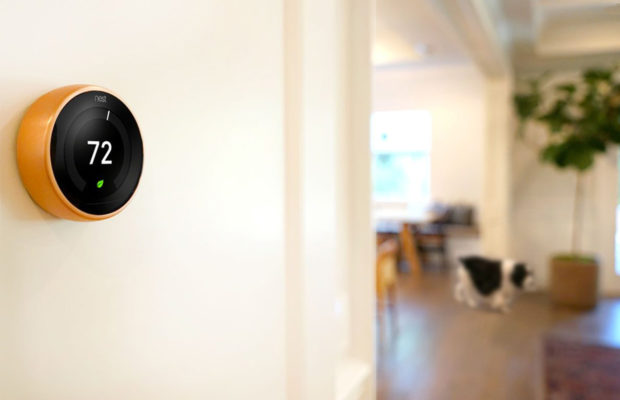12 Ways To Lower Your Energy Bills In Your Home

Does your energy bill seem to be continuously creeping up? Well, a recent survey conducted regarding residential energy consumption shows that an average residential utility customer in the consumes approximately 10,400 kWh in the US and around 5,500 kWh in the UK. In order to manage utility bills, it is essential to find the best and most competitive electricity rates and plans; luckily there are some tricks you can use to reduce your electricity costs.
Proper Use Of Thermostat
You can significantly cut down your heating and cooling bills by resetting your thermostat when you do not need the warmth, especially when away or asleep. Although manual thermostats are quite useful, programmable thermostats are considered more convenient. You need not be around to manually set a programmable thermostat, instead you can set it to automatically adjust the temperature based on your schedule.
Double Glazing
Double glazed windows are more energy efficient than a single glazed one. A double-glazed unit involves two panes of glass with a narrow air gap between the two glasses. This air gap allows for circulation of air thus minimizing heat loss through conduction and convention and therefore dramatically reducing the heating costs.
Consider A Wood Burning Stove
With the rise in gas and electricity prices, wood burning stove seems to be the most suitable heating options. Wood stoves might not be quite efficient in heating the entire house, but they serve to supplement other heat sources. These energy efficient wood stoves not only lower your energy bills but are also a fashionable addition to your home. The type of wood you use can also affect the heat output and efficiency.
Add An Extra Layer Of Clothing
This might sound quite obvious but wearing warmer clothes is still the cheapest and effortless way to lower your heating bills. There is no need of setting your thermostat so high during winter just to allow you to walk around with a vest, short and no socks. Consider dressing warmly.
Insulated Walls
Proper insulation minimizes heat transfer thus reducing the amount of energy needed to cool or heat your home. You can either opt for interior or exterior wall insulation. If you live in cold winter areas, consider thicker insulated walls to keep your house warmer. Ensure proper insulation of walls located next to an unheated space such as the lofts, basements, and garages to save more utility costs.
Closing Windows & Doors
Closing your windows and doors during winter or cold seasons will prevent warm air from escaping thus minimizing the need to heat the room continuously. Equally, opening the windows during summer can help to reduce the cost of running an air conditioner.
Use Dimmer Switches
Dimmer switches allow you to vary the brightness of your lights by adjusting the electric current. This means your lights will run with reduced power outputs hence lowering the operation cost. Unlike traditional dimmers, modern dimmer switches have enhanced their energy efficiency drastically.
Proper Boiler Maintenance
Maintaining your boiler at peak efficiency is another effective way to lower your energy bills. You need to carry out thorough maintenance to ensure there are no leaks, proper functioning of controls and indicators and that the boiler is clean. Dirt or debris can act as insulators, therefore, using up more energy to heat.
Don’t Over Boil The Kettle
Avoid over boiling the kettle to prevent unnecessary heating costs. You should aim to pay to heat only the right amount of water and at the needed temperature. Also, clean the kettle regularly to get rid of limescale and other mineral deposits resulting from hard water that could scale up the heating cost.
Only Run A Full Load Washing Machine Or Dishwasher
Operating your dishwasher, dryer or washing machine on a full load is more energy efficient than running it with half a load. You might adjust the machine to small load settings, yet the amount of water and electricity you use will compare closely to that of running it on a full load. This means that doing two half loads is costlier than a single full load.
Keeping Windows Covered
It is recommended that you cover your windows during cold winter nights to retain the warmth and uncover them during sunny days to let in sunlight to heat the room. There are various materials you can use to cover your windows including blinds and curtains.
Consider Space Or Radiant Heaters Over Central Heat
If you are not using the entire house, then it is unreasonable to use a central heat. Using a radiant heater to heat a single room or a specific area is a lot cheaper than warming the entire house. However, if you are operating on all the rooms then placing a radiant heater on every room might not be cost effective.










 © 2024
© 2024
0 comments